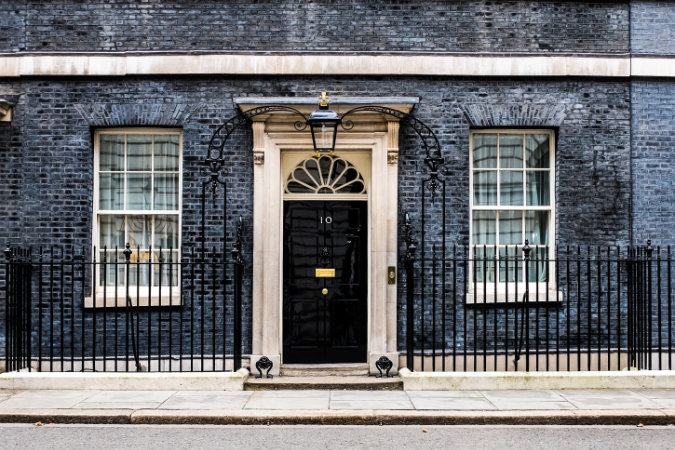Licensed hospitality operators will be recoiling for some time from the triple blow of an increase in the NLW, risen by 50% in five years, increased employer National Insurance contributions and a 50% reduction in the threshold level for Employer National Insurance contributions.
These will be yet another fiscal burden for all businesses and will restrict investment, restrict growth and increase the risk of job losses. As a staff-intensive sector, many in the licensed hospitality industry will now be questioning whether or not they can even maintain their current staffing levels.
With many pubs and bars teetering on the precipice of closure, recent figures suggest that 20% of UK pubs and bars are technically insolvent, the Chancellor’s “short-term pain-long-term gain” Budget is cold comfort to many businesses who will not be here to see the gain, whatever or whenever that might be.
With margins cut drastically there is no room for manoeuvre to cover these increases, other than price rises which will fuel inflation, but at least our colleagues south of the Border have something to celebrate and to help mitigate these crippling additional operating costs – they will receive a 40% reduction in their commercial rates for the next two years.
The SLTA, of course, welcomes the news in today’s Budget statement that there will be 40% relief on business rates for retail, leisure and hospitality up to a cap of £25,000. The current 75% discount to business rates south of the Border – due to expire in April 2025 – will be replaced by a discount of 40%, up to a maximum discount of £110,000.
However, it still means that many businesses will see their business rates nearly double (rather than quadruple). Scotland was deprived of the 75% rates relief which has continued in England for the last two years, despite the Scottish Government receiving extra funding for this through Barnett consequentials.
Continued rates relief for the hospitality sector in England was desperately needed, as it is in Scotland, and our hope now is that today’s announcement will give the Holyrood government the impetus to replicate this support for the hospitality industry in Scotland – to do otherwise would be no less than criminal and neglectful of the importance of the sector to the Scottish Economy. If the Westminster Government recognises this, then why not the Holyrood Government?
This is, of course, a short-term fix and a call for a review of the commercial rating system has come from all of the home nations within the UK, particularly from Scotland, where licensed hospitality businesses are disproportionately burdened with commercial rates charges in comparison with other business sectors in Scotland and in comparison, with licensed hospitality businesses in other parts of the UK.
In partnership with the Scottish Beer and Pub Association, the SLTA has already called for the introduction of a permanent non-domestic rates licensed hospitality-specific multiplier in Scotland of 35p to support our pubs and bars, encourage investment, help revitalise high streets, and rebalance the disproportionate business rates burden.
This would end the sticking-plaster policies that only provide temporary relief for the businesses that bring life to our communities and our city and town centres, where we are seen as the saviour of the high street, and provide one of the largest “tourist attractions” for both domestic and foreign visitors to Scotland with over 75% of foreign visitors and 68% of domestic visitors visiting our pubs, bars and restaurants during their stay.
The increase in the National Minimum Wage, from April 2025, will have serious implications for the licensed trade, particularly independent businesses. A 6.7% increase is significant, and with rates for over-21s set to go up to £12.21 an hour, and for people aged between 18 and 20 years old from £8.60 to £10, will severely impact on businesses which employ young people. Many licensed trade businesses employ students.
Meanwhile, the 1.2% increase in employers’ National Insurance contributions will also affect small businesses. Employees will not pay more directly, but the increase will sting. Reducing the threshold from £9,100 to £5,000 is huge and feels like a tax on jobs, even with the allowances for smaller businesses.
The Chancellor’s decision to cut duty on draft beer by 1.7% is welcome although for SME businesses, such as pubs and bars, it will make very little difference to their pricing structure. Meanwhile, the hike in alcohol duty rates on non-draft products will increase in line with RPI from February next year is extremely disappointing, but not unexpected.
The Scottish Licensed Trade Association has previously called on Westminster to overhaul the alcohol excise duty system and introduce new measures that would create a ‘differential’ between alcohol sold in pubs and bars, and supermarkets. The SLTA believes that cutting duty in pubs and bars would help sustain the licensed trade as it recovers from the pandemic, Brexit, and the current economic challenges.
A duty rebate scheme already exists (Alcohol Ingredients Relief), overseen by HMRC, and could be adapted to include a duty differential scheme for the licensed on-trade. Research from the Social Market Foundation in 2019 showed that this could be ‘revenue neutral’ to the Treasury with its analysis setting out how reforms to alcohol duty could boost UK pub sales by 100 million pints a year, providing a lifeline to the hospitality industry.

